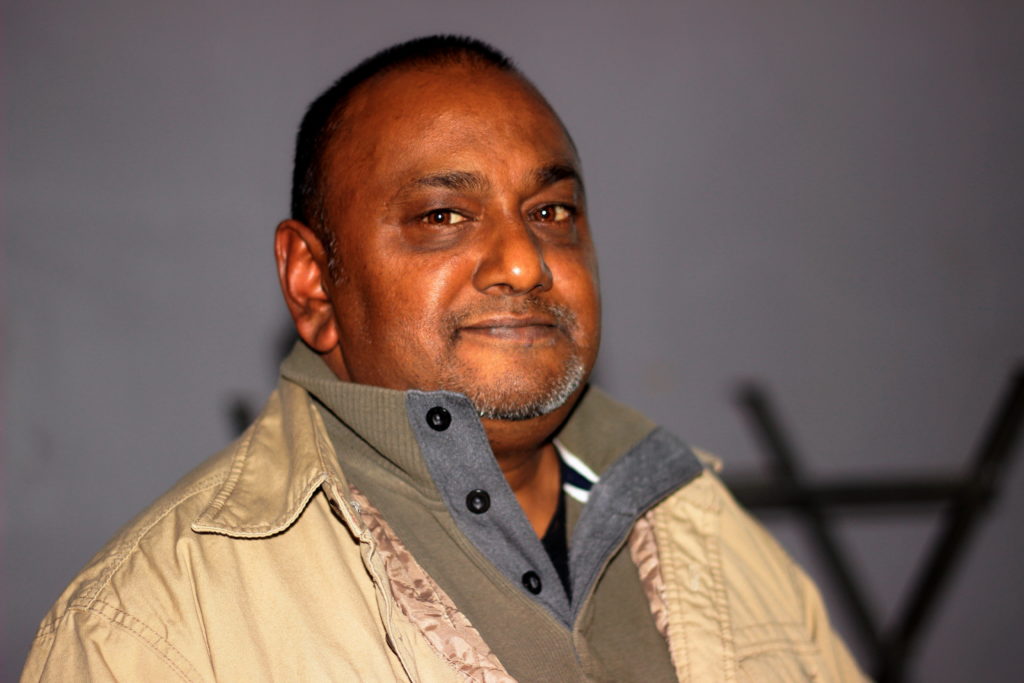“We cannot afford a single breakdown” said Chris Nair Area, Operations Manager of Amatola Water, as he described the precarious Heath Robinson water-supply system of Makhanda. More than 70 people crowded into the Grahamstown Bowling Club to hear him speak on the parlous state of the bulk water supply system.
He was the guest speaker at the annual general meeting of the Grahamstown Residents Association (GRA) on Wednesday evening when he gave residents a status report of bulk water supplies in the Makana Municipal area.
He said that there will be no ‘day-zero’ when the taps will dry up, but he warned that Settlers’ and Howieson’s Poort, the two dams that supply water to the Waainek Water Treatment works, only have enough water for 20 days.
Settlers’ Dam level is only at seven percent which is not enough to pump water without causing cavitation and Howiesons Poort Dam is at 22%.
At the moment, Waainek supplies treated water to the Central Business District (CBD) and the higher lying areas of Makhanda.
Nair explained that recent rains had made virtually no difference to Settlers’ Dam, the larger of the two, and had only increased the much smaller Howieson’s Poort Dam by a mere two percent.
He said that in order to fill the dams, we need about 550mms of rain. In the interim, Waainek will have to rely on boreholes recently drilled by the company contracted by the Gift of the Givers charity organisation.
On the other side of town, the James Kleynhans (JK) treatment plant which receives its water from the Glen Melville Dam, has increased its capacity from 10 to 13 mega litres per day. Nair said that although the plant is now working at 30% over capacity it should be able to continue operating – but if there is a breakdown we could be in serious trouble.
JK is currently supplying the East side of Makhanda with water and at the same time it is able to pump a proportion of its supplies to the low and intermediate reservoirs of the Waainek treatment
works.
The quality of the water has improved and now meets SANS 241 standards.
In addition, MBB Consulting* is busy installing a pump that will push the water from the intermediate to the high reservoir. This means that even when supplies from Howieson’s Poort cease, water will continue to be pumped to Waainek from James Kleynhans and the recently drilled boreholes.
Nair stressed that even with these measures, Makhanda is in dire straits and all forms of water conservation need to be rigidly applied. He acknowledged that the town has already drastically reduced water consumption from 244 to 128 litres per person per day.
This substantial saving was due to people taking the crisis seriously and he highlighted the valuable efforts made at Rhodes University residences and some of the schools. He noted that the Monument is already operating on borehole water and that “rainwater harvesting is going to be the saviour of this town”.
Nair said that Amatola’s presence in Makana is currently being financed by the Eastern Cape Premier’s Office, but reminded residents that this funding would not go on forever.
In his opinion, the real problem with Makhanda’s water supply system is that “there is not enough management and not enough supervision”.
There are other problems which are being addressed. The persistent leaks in the pipes are being repaired and the municipality is putting in place security measures to reduce the unrelenting vandalism that destroys expensive infrastructure.
Nair was not able to answer all the questions because there were so many, but the audience expressed their appreciation for his efforts.
After Nair’s presentation, GRA chairperson, Philip Machanick moved on to other business of the meeting.
There was a discussion about whether the GRA should drop its annual membership fees altogether.
Currently it costs only ten rand to belong to the organisation and some argued that the amount was so small that it was not really worth the trouble. The GRA relies mainly on donations to run its office at the Monument and pay its office administrator.
Other residents proposed that the fees be increased to R50 per year, but Machanick countered saying that the aim of the organisation is to have a wide membership and he did not want the membership fees to exclude anyone.
The meeting then elected the Committee which is responsible for running GRA affairs during the year.
Philip Machanick was re-elected as Chair and Tim Bull was re-elected as Secretary of GRA. Other members of the new Committee are: Richard Alexander, Marian Lenham (Check Spelling), Xolani Simakuhle, Fleur Way-Jones, Sally Price-Smith and Viv Quinn.
* In a previous version we reported that Amatola Water was installing this pump. This is not correct: MBB Consulting is the contractor for this work. Grocott’s Mail apologises for the error.



